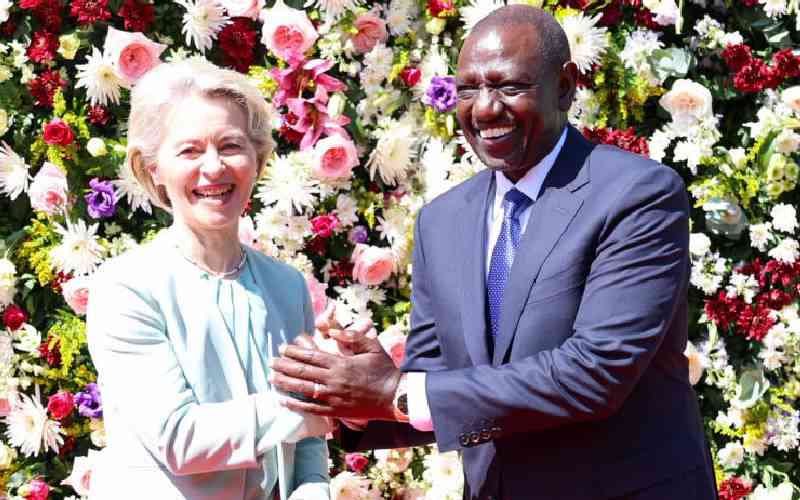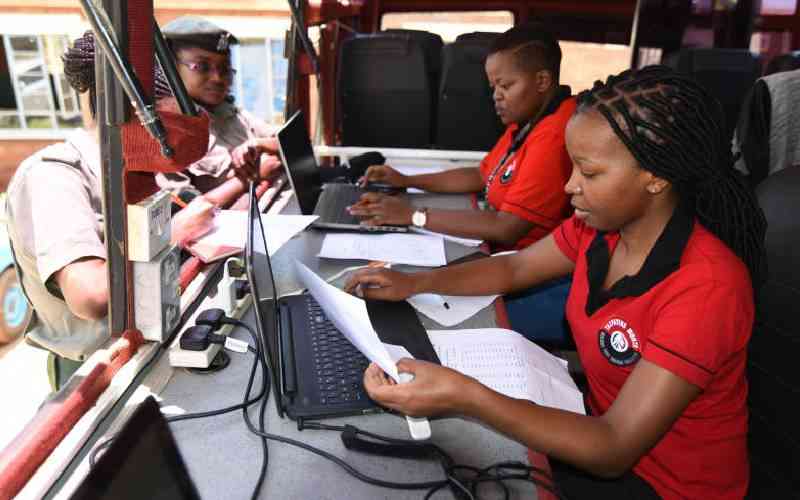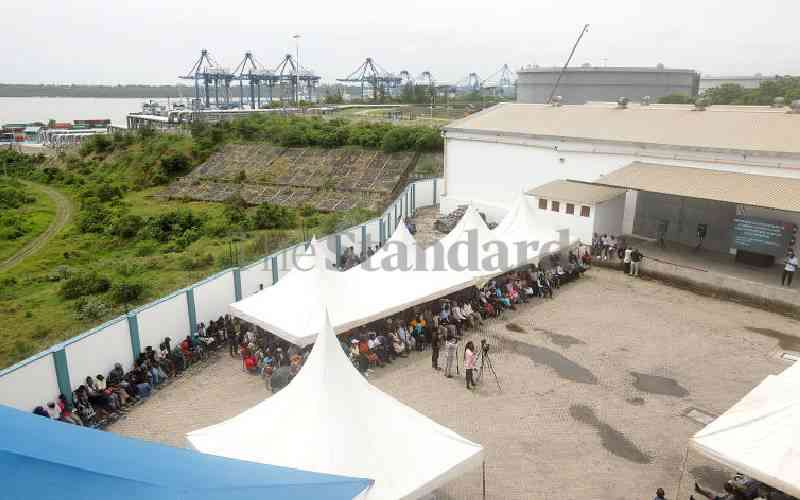
President William Ruto has said that money from institutions such as the International Monetary Fund (IMF) and the World Bank is crucial to support the economy, even as the country grapples with record inflation, fiscal imbalances and low reserves.
Kenya could default on repaying the $2 billion (Sh306 billion) Eurobond, which is set to mature in June next year, in the absence of bailouts and painful economic programmes from the Bretton Woods institutions, he said during Sunday's national address with various television stations.
"Our economy today is out of debt distress and that is the truth. The kind of decisions I have made are very painful. I know they will cause pain. It is better to make those decisions now than get Kenya into debt distress," said Ruto alluding to some of his painful taxation measures backed by the Bretton Woods institutions.
Various economic advisors in the Ruto administration had earlier also maintained the importance of the bailouts.
On Sunday, President Ruto maintained the same view while explaining why the country has been eager to access the bailout programmes from multilateral lenders such as the World Bank and the IMF despite the strict conditions they entail.
The much-needed bailout packages from IMF and the World Bank are tipped to help his administration avert a potential debt default and economic collapse, amidst the persisting local and global economic uncertainty, argued President Ruto.
The President emphasized the significance of countries that failed to meet their loan obligations, highlighting that the most detrimental outcome for a nation is to fall into a state of debt distress.
- Ruto remains mute as healthcare crisis worsens
- Government calls on KMPDU to end strike
- Ruto meets KMPDU officials, promises lasting solutions to end industrial strikes
- Ruto forms a 20-member team to audit healthcare resources
Keep Reading
Ethiopia, whose economy surpassed Kenya's as the region's fastest-growing failed to pay a coupon on its single outstanding $1 billion (Sh250 billion) Eurobond which had been due on December 11, saying recently it could not make the payment.
Ruto however affirmed that the country has successfully overcome its debt distress and that the economy has achieved stability.
The Kenya Kwanza government has "no other option" but to implement painful economic measures such as prescribed by the IMF and the World Bank programmes through the budget cycles as a condition to revive the cash-starved economy through their generous but conditional bailouts, he underlined.
Kenya and both the IMF and the World Bank have agreed on lucrative loan programmes running into trillions of shillings to help support the cash-starved Kenya Kwanza administration.
Ballooning inflation, escalating borrowing costs, and a strong dollar have made repaying sovereign loans and raising money significantly more expensive for Kenya amid fears of default.
The cash shortage crisis has seen the government struggle to pay civil servants and disburse funds to the counties and schools.
The shilling has also weakened sharply against the dollar, piling further pressure on Kenyans amid a cost of living crisis that has plunged many into poverty and fuelled demonstrations.
But the IMF conditions, such as the need to broaden the tax base, are necessary as alternative financing options for the Eurobond beyond the Bretton Woods lender remain uncertain, said President Ruto.
Over time, IMF and the World Bank have been subject to a range of criticisms, generally focused on the conditions of their loans. The criticism has been that their policies of structural adjustment and macroeconomic intervention are making an already difficult economic situation worse.
Kenya's recent budget proposals have been seen to be in line with IMF calls to see Kenya shrink its deficits - through tax hikes and spending cuts - in what various interest groups say will cause far more economic damage than experts had assumed.
President Ruto's administration, which took over in September last year, has been under pressure to bring down the cost of living. Some of the proposed tax measures have been questioned by various interest groups.
But while at the risk of rattling its low-income base (hustlers), who largely voted for it, the government has doubled down on several rounds of tax, governance and monetary policy reforms as part of IMF and World Bank-backed revenue-raising measures with the government.
It is these measures as presented in successive budgets of the Ruto administration that have now stoked fears of a return to painful measures that have resulted in civil servants losing their jobs and increased taxes.
The new government has already done away with maize and the fuel subsidies that had been put in place by the previous regime, exposing Kenyans to a higher cost of living.
The Ruto government has since rolled back all measures that were put in place to cushion Kenyans against the negative effects of Covid-19.
With inflationary pressures expected to continue, the cost of living, which has generally gone up, is expected to worsen, with many Kenyans still reeling from the negative effects of Covid-19, which saw a majority of them lose their livelihoods.
In making the budgets, the government has been seen to face pressure to find a balance between reforms to satisfy IMF and the World Bank and measures to win over and shield hard-pressed consumers from the cost-of-living crisis, analysts say.
But President Ruto yesterday reiterated that his government is ready to maintain the IMF and World Bank's bitter prescription to get the battered economy back on track.
The potential challenge of refinancing upcoming maturing debt had been highlighted by the World Bank, cautioning against the backdrop of increasing borrowing costs and more stringent market conditions.
The IMF and the World Bank have heaped rare praise on the government with the former particularly saying President William Ruto's administration "has been taking very prudent measures both on the fiscal front and on the monetary policy side" to minimise fiscal risks.
"We see the government as very determined to be in a position of strength. What is the evidence? We have a programme and in the programme, there is an agreement tightening the fiscal side," IMF Managing Director Kristalina Georgieva told The Standard in an earlier interview, alluding to the clearer painful taxation measures.
"We have seen the budget that has been crafted exceeding that target. We are in very intensive discussions with the Central Bank on how it can help in retaining that position of strength."
 The Standard Group Plc is a multi-media organization with investments in media platforms spanning newspaper print
operations, television, radio broadcasting, digital and online services. The Standard Group is recognized as a
leading multi-media house in Kenya with a key influence in matters of national and international interest.
The Standard Group Plc is a multi-media organization with investments in media platforms spanning newspaper print
operations, television, radio broadcasting, digital and online services. The Standard Group is recognized as a
leading multi-media house in Kenya with a key influence in matters of national and international interest.











